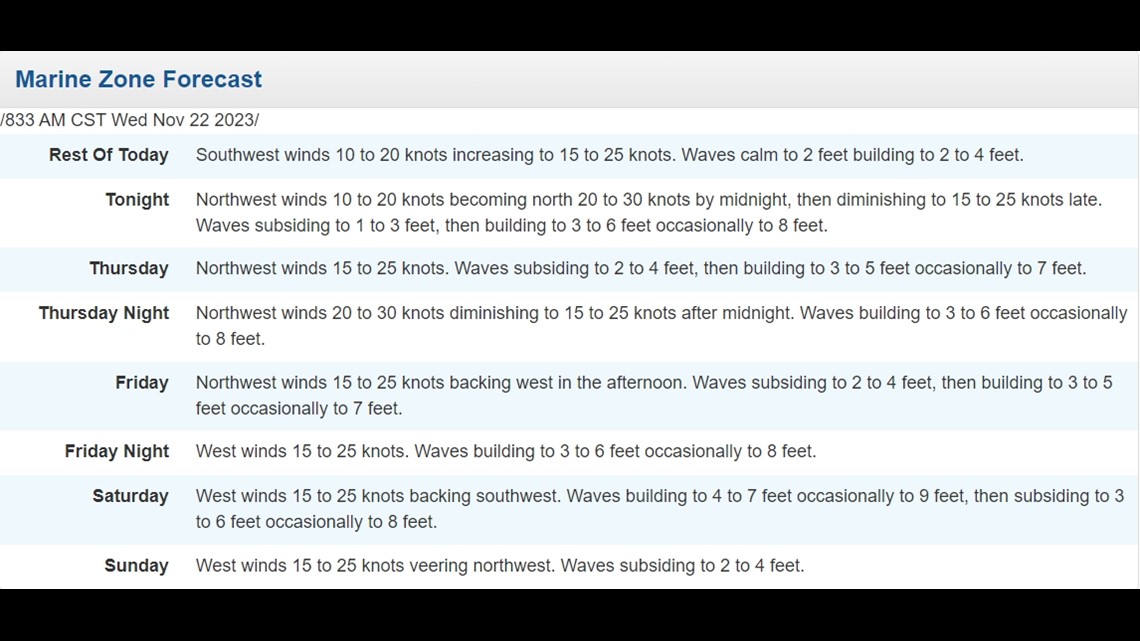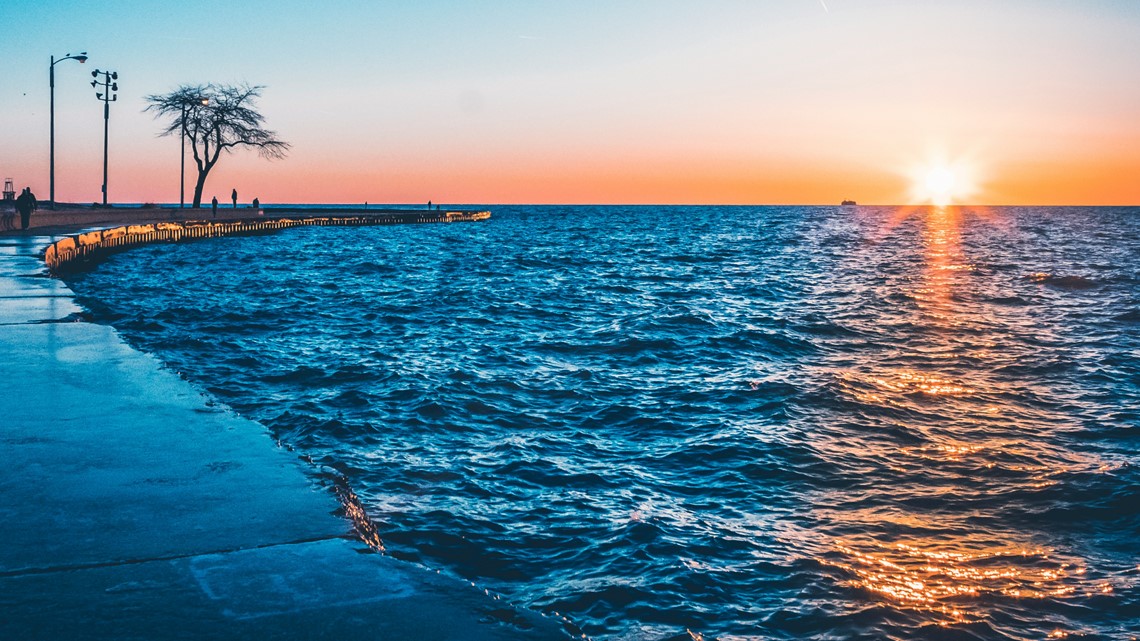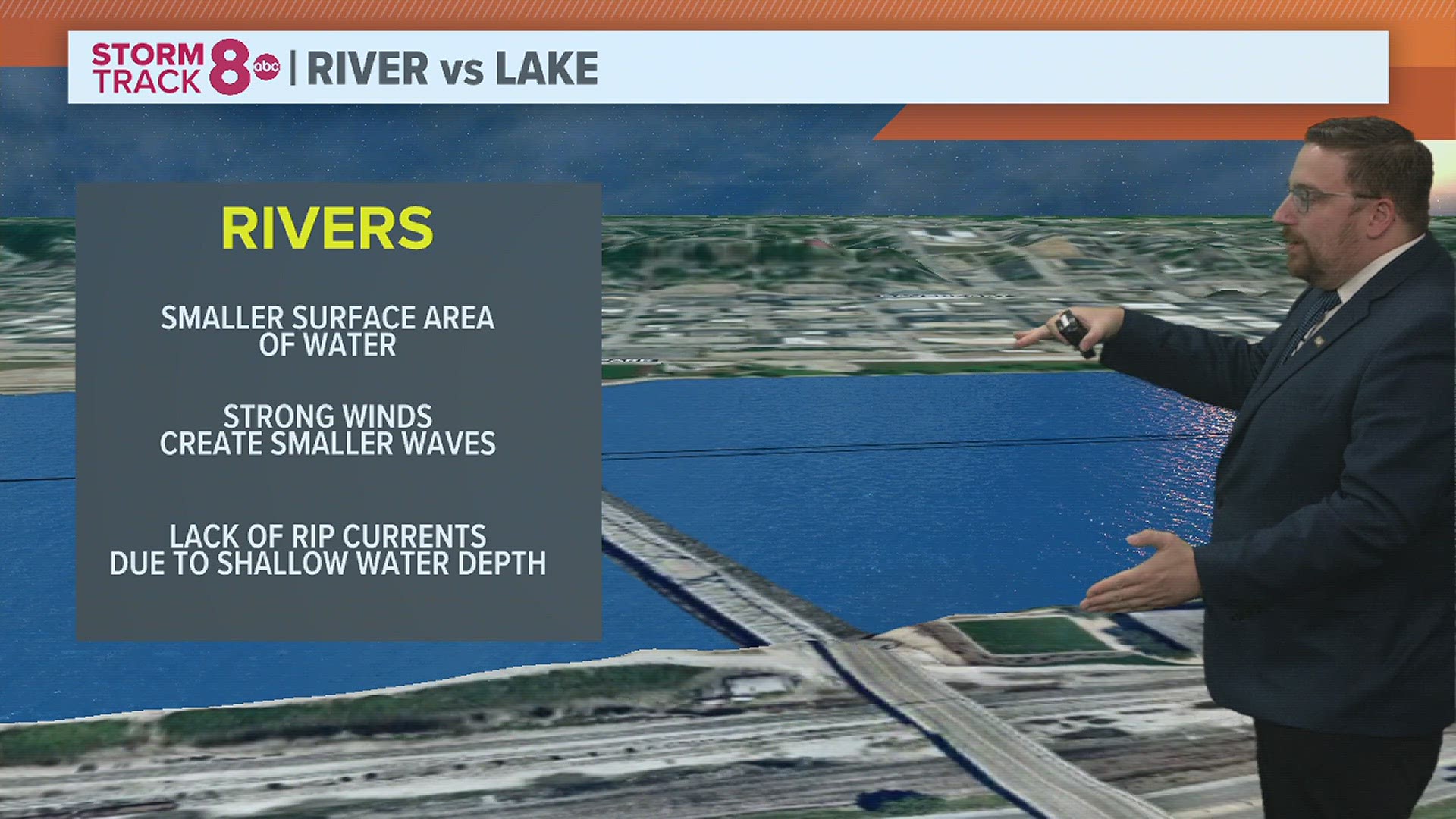MOLINE, Ill — The mighty Mississippi River has quite an impressive history behind it. A crucial corridor of not only transportation but also economic development, too! Flowing more than 2,300 miles in length ranks it as the fourth largest river in the world! Billy from Clinton, Iowa, wondered why the National Weather Forecast doesn't issue marine forecasts, or even marine warnings for that matter for the river. It's a great question! Let's dig in!
Marine forecasts and warnings
First, let's start with what exactly marine forecasts and products are. The U.S. National Weather Service doesn't just forecast the weather we experience, they also forecast for airports and marine areas around the country. Marine forecast products consist of three things: wind speed, wave height and weather hazards.


The National Weather Service in Chicago issues marine forecasts for Lake Michigan near Chicago. Above is an example. You can see they highlight wind direction/speed, expected wave height and any mention of showers or thunderstorms.
The Mississippi River sees less impact from weather
Lake Michigan has a surface area of 22,300 square miles. 321 miles long and 118 miles wide, the weather has a much bigger impact on this body of water and the rest of the Great Lakes than it does on rivers. That's more surface area that wind can touch, pushing water in different directions and creating some really large waves. Even on a day that we would just consider to be 'windy', waves can build rise from six to eight feet in height! That spells trouble for smaller boats and vessels.
Meanwhile, the Mississippi River isn't nearly wide enough or large enough at any given point for it to see the impacts of weather compared to a much larger lake. Sure, on a windy day, you can expect to see the occasional white caps and some larger waves, but certainly nothing as large as six feet.


"The much larger scope of the lakes and coastal waters is a factor. Also, the impacts on the Mississippi, such as high waves, are much less," says Rich Kinney, Warning Coordination Meteorologist at the National Weather Service in the Quad Cities.
Another thing to consider is when you venture out on a much larger lake, whether it be Lake Michigan or Lake Superior, you are likely going to travel a considerable distance away from shore. That makes marine forecasts even more important because you have less time to get to land and seek adequate shelter should more severe weather develop and move in. Compared to the Mississippi River, you are just a few moments away from either side of the shore.
Have a question you would like me to answer for an upcoming Ask Andrew segment? Submit it, here.

